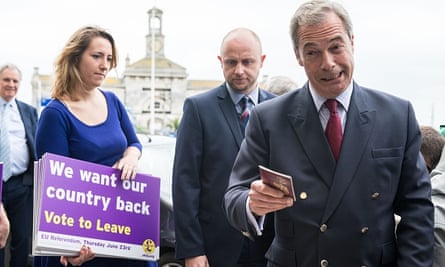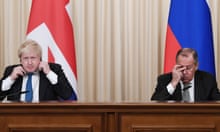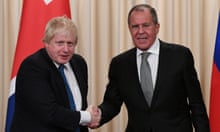Russia’s attempts to influence British democracy and the potential vulnerability of parts of the UK political system to anti-democratic meddling during the EU referendum have been detailed in a report prepared by the US Senate.
The report by Democrats on the Senate foreign relations committee, titled Putin’s asymmetric assault on democracy in Russia and Europe: implications for US national security, pinpoints the way in which UK campaign finance laws do not require disclosure of political donations if they are from “the beneficial owners of non-British companies that are incorporated in the EU and carry out business in the UK”.
This opacity, the report suggests, “may have enabled Russian-related money to be directed with insufficient scrutiny to various UK political actors”.
“Investigative journalists have also raised questions about the sources of sudden and possibly illicit wealth that may have been directed to support the Brexit ‘Leave’ campaign.” The UK Electoral Commission has already launched an investigation into the issue.
The senators point out that Ukip and its then-leader, Nigel Farage, did not just fan anti-EU sentiment but also “criticised European sanctions on Russia, and provided flattering assessments of Russian President Putin”.
The report adds that although officially the Russian government asserted its neutrality on Brexit, its English-language media outlets RT and Sputnik covered the referendum campaign extensively and offered ‘’systematically one-sided coverage’’.

The senators also challenge the adequacy of the investigations by Facebook and Twitter into the allegations of widespread social media interference by the Russians during the referendum. They reference University of Edinburgh research showing more than 400 Russian-run Twitter accounts that had been active in the US election had also been actively posting about Brexit.
In addition, the senators noted that research conducted by a joint team of experts from the University of California at Berkeley and Swansea University reportedly identified 150,000 Twitter accounts with various Russian ties that disseminated messages about Brexit.
The report also points to the vast flow of Russian money into the UK, including the London property market. It records how the Metropolitan police noted that a total value of £180m in properties in the UK had been put under investigation as possibly purchased with corrupt proceeds by secretive offshore companies.
Q&AWhat is a Twitter bot?
Show
Strictly defined, a Twitter bot is any automated account on the social network. That can be something as simple as automatically tweeting links to news articles – most of the Guardian's social media accounts are technically Twitter bots, for instance – to complex interactions like automatically generating Emoji-based art or automatically replying to climate change deniers with scientific evidence.
But, as with "troll" and "fake news", the strict definition has been forgotten as the term has become one of political conflict. The core of the debate is the accusation that a number of political tweets were sent by "Russian bots", with the intention of subverting political debate, or simply creating chaos generally.
Based on what we know about Russian information warfare, the Twitter accounts run by the country's "troll army", based in a nondescript office building in St Petersburg, are unlikely to be automated at all. Instead, accounts like @SouthLoneStar, which pretended to be a Texan right-winger, were probably run by individuals paid 45-65,000 rubles a month to sow discord in Western politics.
In other ways, they resembled bots – hence the confusion. They rarely tweeted about themselves, sent far more posts than a typical user, and were single-minded in what they shared. People behaving like bots pretending to be people: this is the nature of modern propaganda.
Overall the report breaks little new ground in terms of fresh evidence but says the picture remains incomplete. “The allegations that have emerged of Russian interference prior to the Brexit referendum are all the more stunning given the innate resilience within British society to the Kremlin’s anti-democratic agenda,” the senators wrote.
The report, which chronicles Russian disinformation efforts in 19 countries, calls on Donald Trump to assert leadership on Russian meddling in the 2016 presidential election, saying: “Never before in American history has so clear a threat to national security been so clearly ignored by a US president.”








